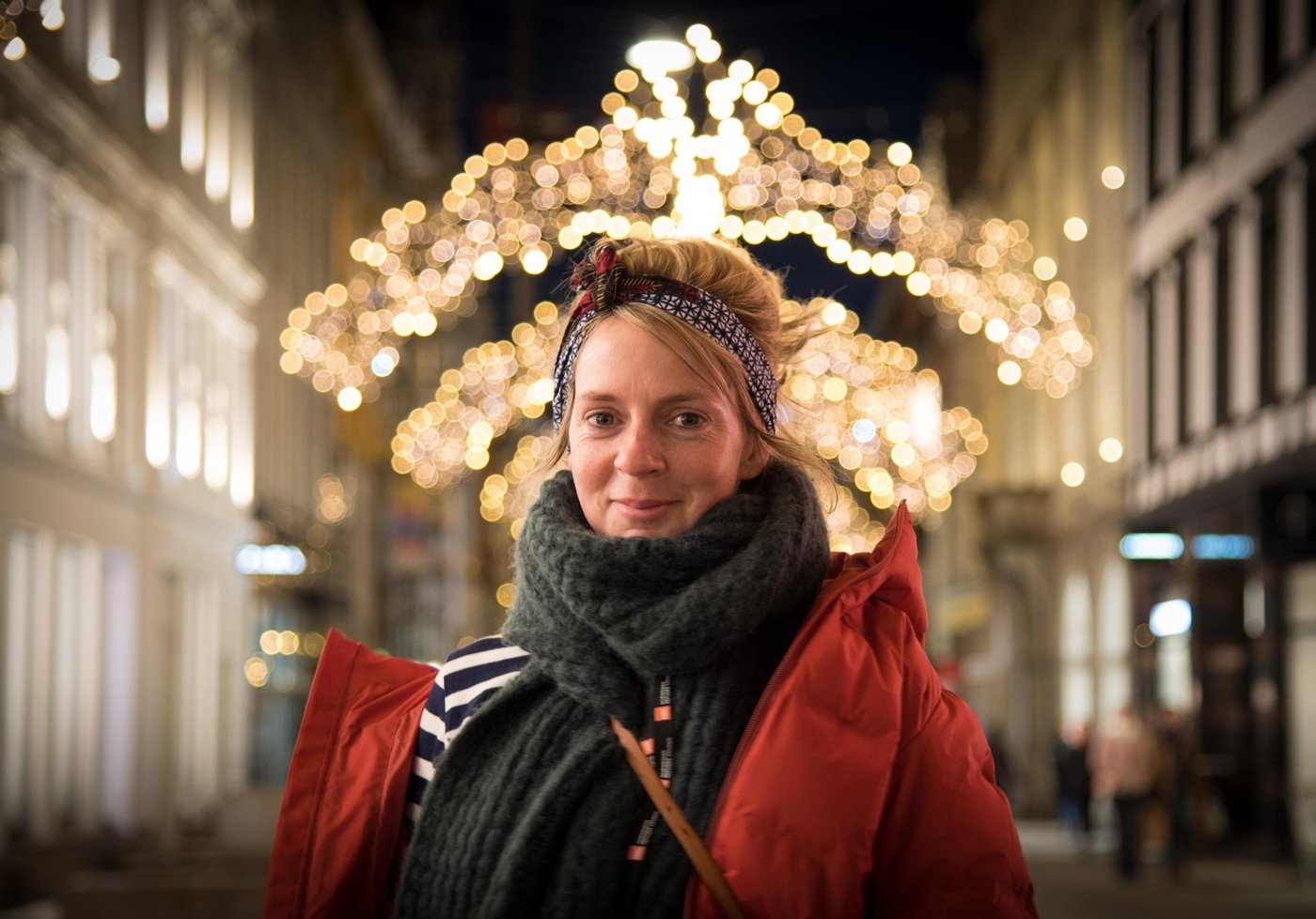In a meeting room at NRC’s Head Office in Oslo, Suze van Meegen sits cross-legged on the chair. Her clothes are loose, and around the blonde hair she’s tied a colourful scarf. She smiles often and seems light at heart. A contrast to the serious face she tends to have on TV.
A colleague describes her as "a spin doctor with a heart". A spin doctor is engaged in strategic communication, who controls a message in a particular direction. In Suze van Meegen’s case, her communication is always aimed at helping the world understand the victims of this conflict: the people of Yemen.
“Yes, is that what I really do? Spin the complexity of Yemen into something people can feel and understand,” she says and laughs, before she adds:
“Reporters can’t enter Yemen. Therefore, we humanitarian workers have an important role. My working days consist of talking to people and reading a lot. Analysing. Trying to form a picture of what's going on, what needs to change, and turning it into powerful messages to the media and international donors. NRC should help to make a difference.”
Al Jazeera, BBC and CNN
Three years of war between the internationally-recognised government and the Ansarallah (Houthi) opposition group have led to a humanitarian catastrophe. The UN says that the eight million people are affected by severe food shortages is climbing and around 14 million - half of Yemen's population - are now on the brink of famine. More than 10,000 people have been killed since the war started, according to the World Health Organization.
On the news we hear about regional and international powers fighting for influence and authority. But to learn about the situation for the civilians, TV stations and news agencies need to find someone who can convey this. Al Jazeera, BBC, CNN and many other news outlets choose Suze van Meegen.
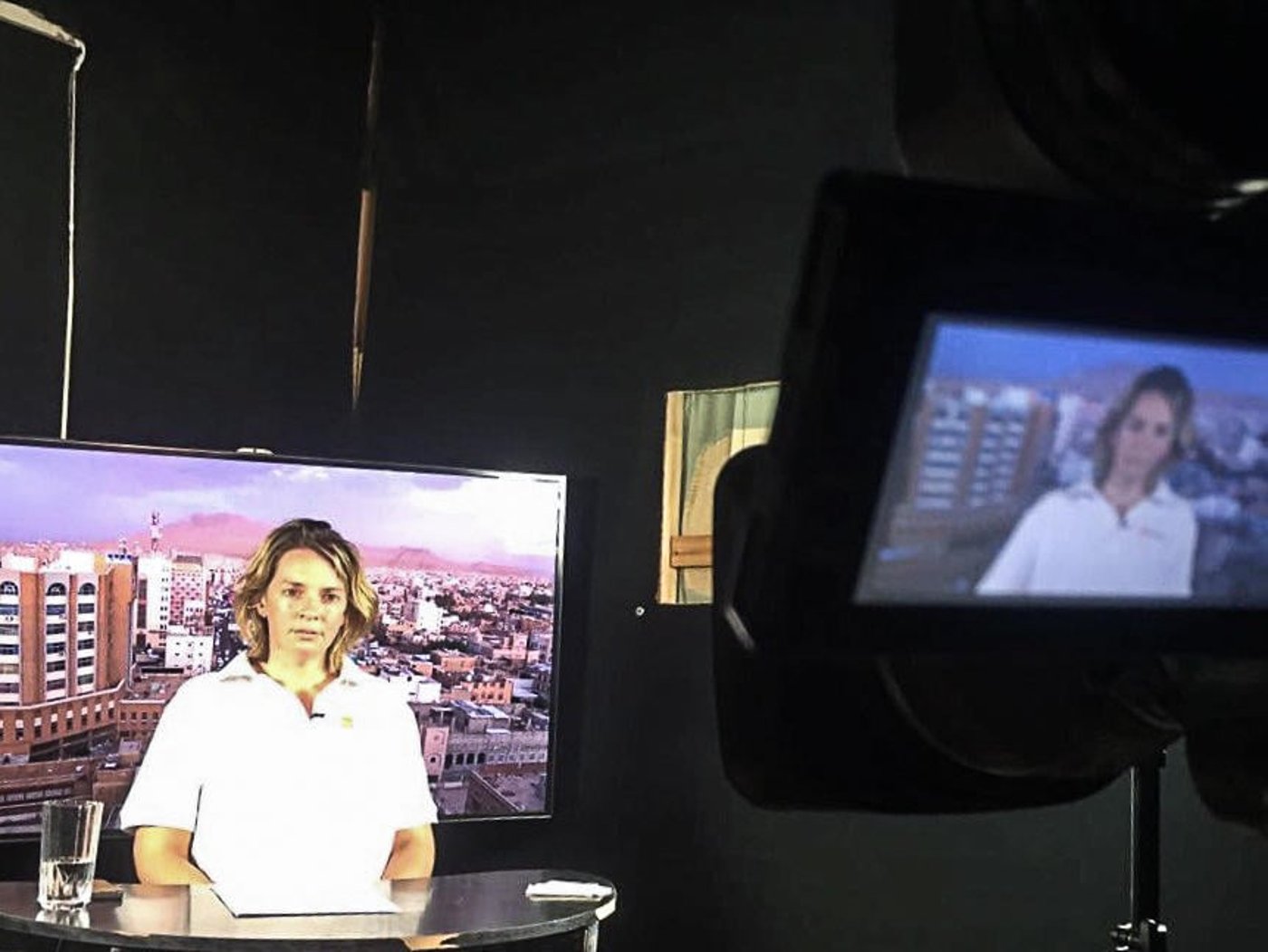
Inspired by her parents
She grew up in the capital of Australia, Canberra. Her mother’s family is originally from a rural area outside the south-eastern city of Wagga Wagga. Her father migrated to Australia after World War II and moved up and down the coast with his parents looking for work. Growing up, Suze spent many an hour at her grandparents’ farm.
“Mum and dad modelled good social justice principles. They stem from working class families and believe that everyone should have the same opportunity for what Australians call ‘a fair go’. That’s probably what led both my sister and I to get into social work, and later proceed into humanitarian work,” she says, and explains that her sister lives and works in a predominantly Aboriginal community.
Van Meegen studied subjects with a focus on Indigenous policy and took a master’s degree in forced migration. She worked for the Australian Red Cross, first in child protection, and later with refugees and asylum seekers. Then she went to East Timor to work for a women’s rights organisation, before she travelled to Kenya and South Sudan with Save the Children. In June 2017, she was employed by the NRC to work in Yemen.
Sana’a – a beautiful city
It’s been described as «the forgotten war» and «the world’s worst humanitarian crisis».
“Describing the country as «forgotten» implies that people are unaware of what’s happening there. I’d rather describe Yemen as neglected. The world knows what’s happening, but chooses to neglect it.”Suze van Meegen
She stops and thinks for a minute:
“When you arrive in the major cities of Sana’a and Aden, you'll be surprised. The cities are fascinating and strikingly beautiful, both with distinctive architecture; Sana’a is a UNESCO World Heritage Site. Everything appears to operate normally, there are goods in the shops and you don’t necessarily see a lot of bombed buildings. You have to scratch the surface a bit to find out how miserable the situation really is. The first time it dawns on you that there is war in Sana’a, is when you hear the planes. The sound of planes means bombs.”
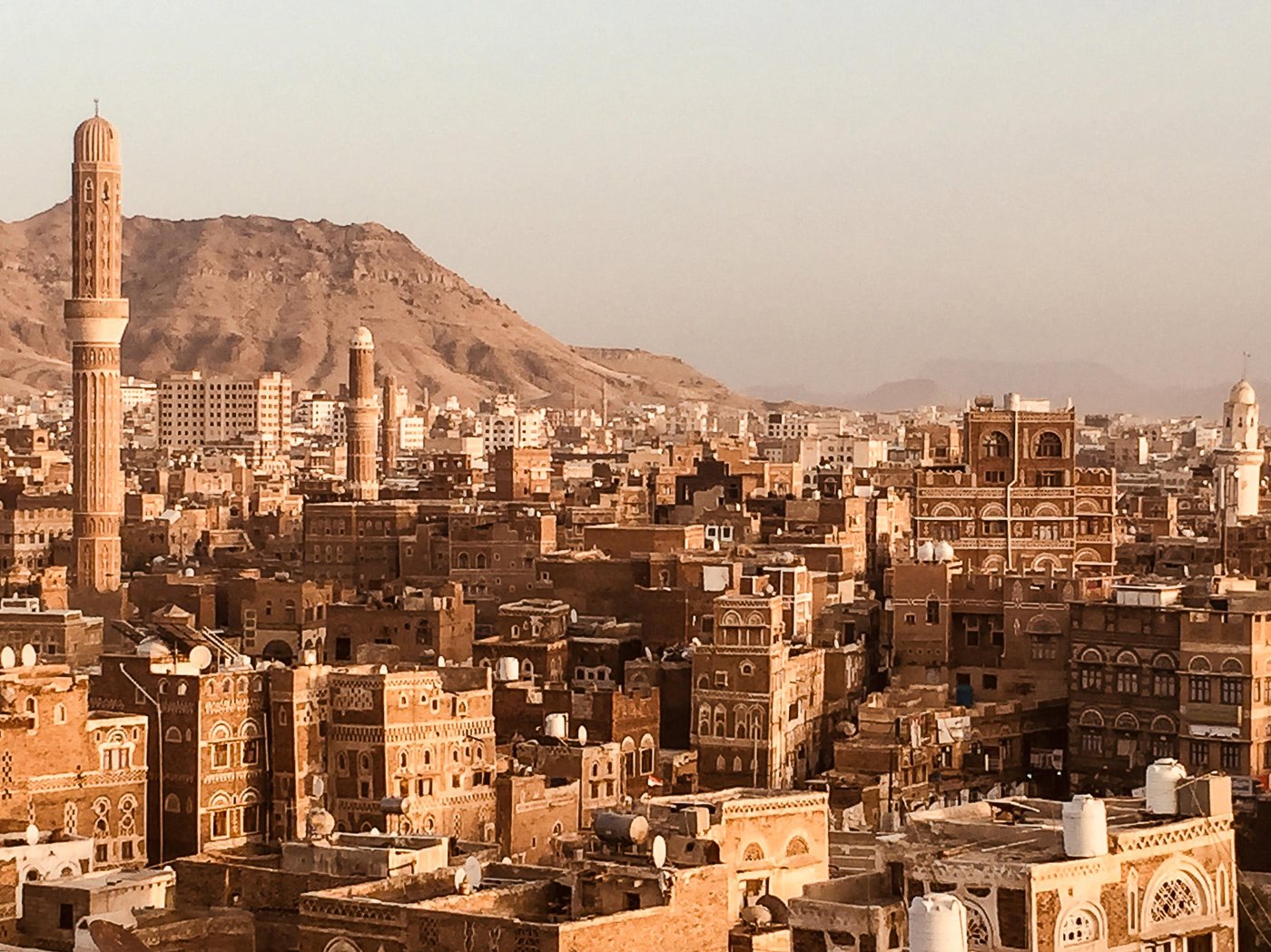
Frightened in the basement
Van Meegen finds it rather embarrassing that she and other humanitarian workers in some way are seen as «heroes» who enter Yemen to save people.
“We are able to leave, while our Yemeni colleagues are stuck here,” she says.
In April this year, the Lebanese humanitarian worker Hanna Lahoud from the International Red Cross, was killed in an attack in the city of Taizz. As a foreign humanitarian worker there are many safety precautions to consider.
“We can say that we live in Yemen, but in a way we don’t. We must stay in our own fenced areas. There are strict rules for how to move from place to place, due to the risk of bombings or being caught up in other violence.”Suze van Meegen
In December last year, van Meegen wrote a blog post for the Huffington Post. She wrote the text and the sites editor named it accordingly: «I'm An Aid Worker in Sana'a And No One Is Safe».
“Have you ever feared for your life?”
“Back in December last year, there were very heavy clashes in Sana’a, followed later by what felt like relentless bombing. We knew we weren’t the target of any of the attacks, but we also know things can go wrong. We had shooting and heavy artillery outside the house, and planes that felt like they were hovering over our roof. The fighting was mostly at ground level, and that feels safer to me than when bombs are being dropped. Bombardment from the air feels much closer. Had our house been hit then, we probably wouldn’t have survived. So, I think that … yes, we who sat in that basement were afraid. But this is not something a family really wants to hear!” she says, laughing a little.
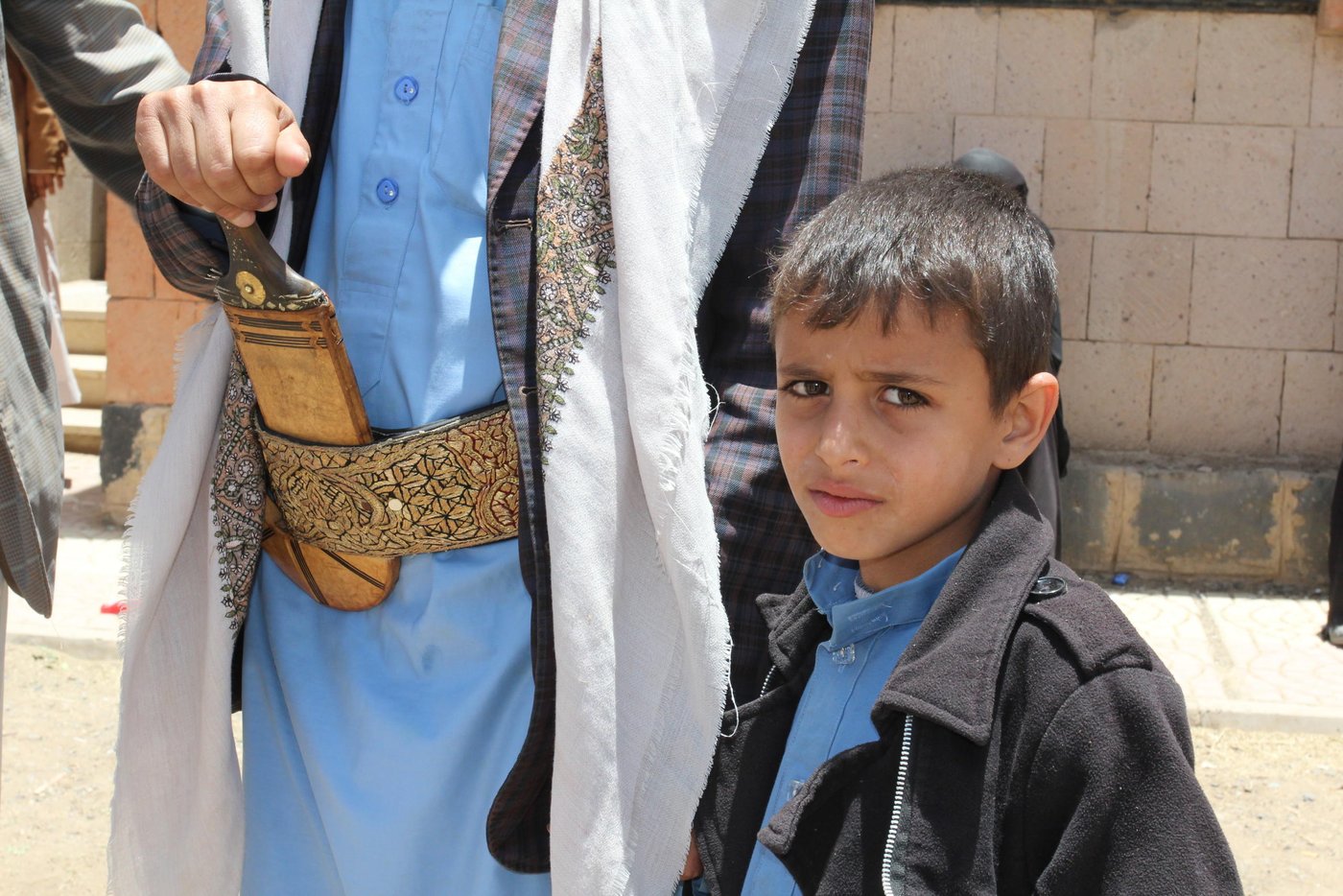
Bombs and extremists
During the attack in December, she called some of her Yemeni colleagues to check that they had water and anything else they might need – and if they had a plan to get out.
“I spoke to a colleague who was in a cellar with his mother. She needed to get to the hospital. The family had tried to leave the house, but realised that there were snipers outside, so they had to stay put. After a while, he called back and told me that a neighbour, a 13-year-old boy, had been shot dead while trying to leave.”
In January there was more heavy fighting. This time, van Meegen was in the city of Aden. Together with three colleagues, she sat inside a house without a basement for six days while heavy shooting took place across the city.
“We had very little protection and knew that in addition to the fighting, there is a lot of extremist activity in the area. It was important then that we kept a low profile until the worst blew over. It was the same for our many Yemeni colleagues in the same position and now accustomed to waiting these things out.”
“How do you cope when you’re scared?”
“I'm just working. It feels absolutely necessary. The most significant thing I can do is tell the world what the situation is like.”
Movement restrictions
But a regular working day for Suze van Meegen in Yemen is not that dramatic. She gets up at 7 am, works for an hour, checks her email and finds out what has happened during the night. Often, there are requests from the media to comment on Yemen. She creates a prioritised work list. For breakfast she may eat a banana. No coffee. Then, she is picked up by a car and transported to the office. There, she has her coffee – Yemen is the birthplace of coffee and Yemeni people are big coffee drinkers.
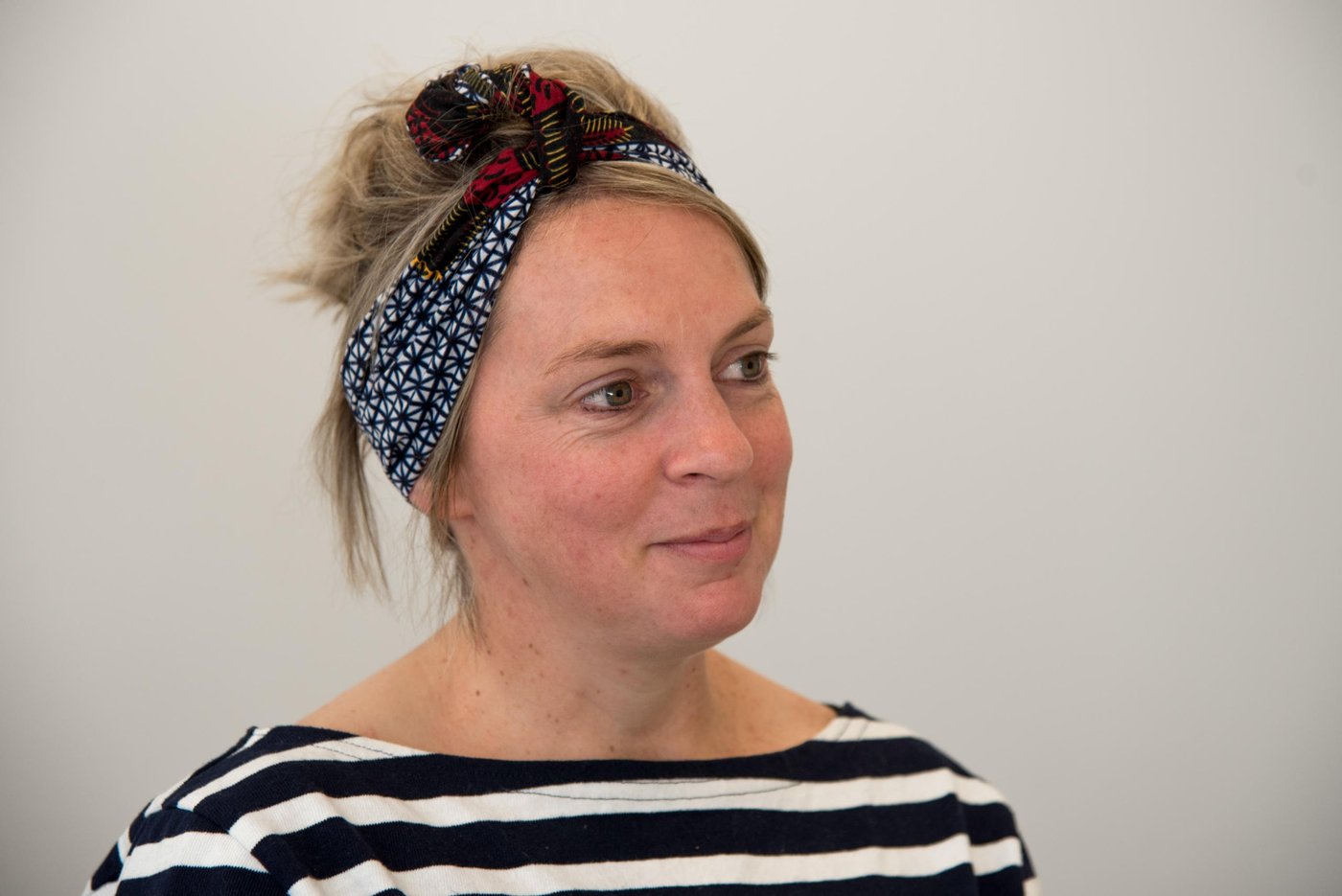
Often, she is transported to other humanitarian organisations, where the aim is to exchange information and perhaps plan activities together. She is transported home at around 7 pm. Dinner may consist of cereal or pasta. She works for about seven more hours.
“Do you ever travel to the field?”
“Occasionally. First, we must submit a great deal of paperwork to authorities - what we intend to do, who will be with us, what vehicle we will use and so on. This needs to be ready a week before we go.”
“What do you do when you’re out in the field?”
“Then I meet with colleagues and the people who receive our services, to understand what's happening. I also seek out the authorities in the area, to hear their views,” she says, and explains that it is limited how much she can move around because of security restrictions. Non-citizens draw attention that can put our Yemeni colleagues at risk. If this is the case, we should stay where we are.”
Cautious optimism
When we interviewed van Meegen earlier, in January, she was not very optimistic about the situation in Yemen. Now peace talks are happening in Sweden between the parties. However, this is not the first time talks have been initiated – the last round was in September.
“I was right not to be optimistic, because the situation has become much worse. On the other hand, there have been some positive developments in recent weeks. It is very good that the conflict parties have agreed to meet in Stockholm. The international community seems more aware of how grave the situation is, and that it’s not going to get better without serious political intervention. These are slight positive developments, but they don’t nullify immediate humanitarian needs.”
“You’ll be done working in a few months. Is that a relief?”
“In a way. But it’s sad to leave so much behind. If you work with Yemen and love the country, you never really stop working. You’re working all the time. I love Yemen and our team. We share a lot when we work so closely.”
“Are you thinking of something in particular?”
“For example, this happened a couple of weeks ago: We interviewed a candidate for a job. Halfway through the interview, we heard the bombs and had to wait in the basement. Down there the atmosphere was a little giggly; for here we had this poor guy who was at his job interview. He said, «I was nervous before the interview, but now I feel much more relaxed. Because I'm here with the whole team».”


